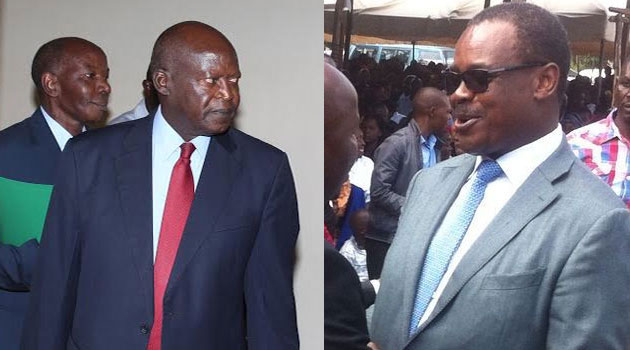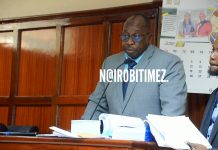
Supreme Court Judge Philip Tunoi and Nairobi Governor Dr Evan Kidero could have transferred Sh200 Million to bribe Supreme Court Judge Philip Tunoi.
BY THOMAS KARIUKI
The Ethics and Anti-Corruption Commission has reason to believe that Nairobi Governor Dr Evan Kidero could have transferred Sh200 Million to bribe Supreme Court Judge Philip Tunoi.
In papers filed at the high court, the EACC says that Dr Evans Kidero’s accounts notably reflected a sum of Ksh200 million equivalents to slightly over US$2 million at the prevailing exchange rate which amount was apparently deposited in a fixed deposit account.
The anti-graft agency also says that it was evident from the transactions in the said account that Dr Kidero could easily afford US$2 million equivalent to the bribe he is alleged to have given judge Tunoi. “Besides, the account reflects other funds invested in fixed deposit accounts.”
In January 2016, EACC received allegations to the effect that the governor bribed Judge Tunoi to influence the bench so as to decide in his favour in an appeal for Nairobi gubernatorial elections he was facing.
The EACC sought to investigate the governor’s bank accounts to verify the allegations and also establish the money trail and movement of the said money supposedly used to bribe the judge.
In the documents, EACC says that they received further allegations that Dr Kidero colluded either directly or indirectly to fraudulently transfer public funds to personal accounts and that he acting with other officers at Mumias Sugar Co. Ltd and Nairobi City County, perpetrated conduct amounting to corruption and economic crimes.
The anti-graft body also said that the also received intelligence that the Governor has been ‘regularly’ receiving millions of shillings in bribes from sugar traders and dealers while at the helm of the fallen sugar giant.
“The evidence provided reasonable suspicion that the petitioner (Governor Kidero) was involved in corruption conduct or economic crimes,” EACC holds.
They added that the bank statements they have been able to peruse reflect large cash deposits on a regular basis quite characteristic of money laundering.
EACC also contends that under the current and constitutional framework an application for warrants to investigate accounts are ex parte proceedings in furtherance of investigations and had cause to mutilate and take away the documents.
This was in response to a leakage of information from the judiciary, informing the Governor that his accounts will be investigated.
“It is not clear to me how the information relating to this application was communicated to the petitioner’s advocates yet it was presented to court and dealt with ex parte,” EACC says.






